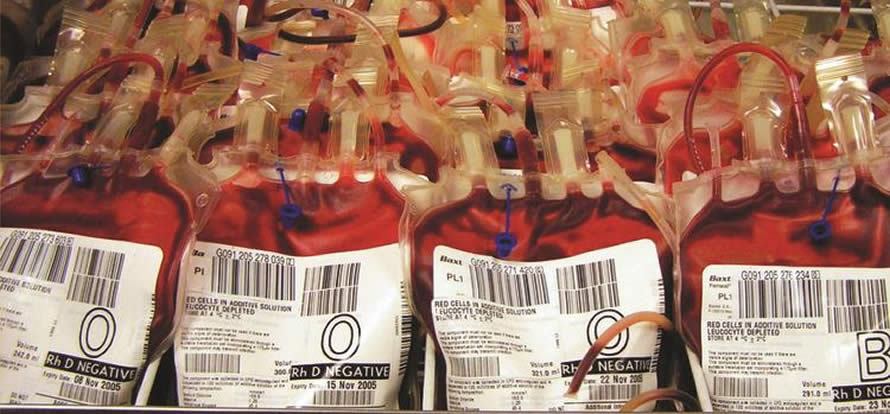
The Sunday Mail

 There are concerns that scores of patients who require blood transfusion will be at risk following revelations that the National Blood Services of Zimbabwe (NBSZ) — the country’s sole blood supplier — only has blood collection kits to last for two weeks. The kits screen for hepatitis B, hepatitis C and HIV.
There are concerns that scores of patients who require blood transfusion will be at risk following revelations that the National Blood Services of Zimbabwe (NBSZ) — the country’s sole blood supplier — only has blood collection kits to last for two weeks. The kits screen for hepatitis B, hepatitis C and HIV.
It also emerged last week that some referral hospitals are already facing blood shortages.
Those under threat include maternal, radiotherapy and anaemia patients as well as accident victims.
The country needs an average of 75 000 blood units annually.
At any given time, blood banks should have collection kits to cover six months. However, owing to critical funding constraints, the NBSZ is reportedly unable to purchase new kits if available stocks run out.
NBSZ chief executive officer Mr David Mvere said the situation was dire.
“The situation is terrible because we currently have kits enough to collect blood for 10 to 15 days and after that, we have no idea how we are going to function,” he said.
Information obtained last week shows that the blood supplier is experiencing serious financial problems largely because most health institutions are not paying for the blood supplies.
This has seen it cut supplies to Government hospitals and demand cash up front. Government owes over US$1,6 million.
Private hospitals are, however, getting supplies under a 60-day credit facility.
“Government’s outstanding US$1,6 million is seriously affecting our capacity to pay our suppliers for the kits,” he said.
“Presently, there is no money to purchase more kits and we have been knocking on our donors’ doors, but so far nothing has come up.
“We normally get funds from donors and the fiscus, but this time, we have not yet received anything.”
Investigations show that health institutions like Masvingo Provincial Hospital have not received blood units on credit in the last three months whilst major hospitals such as Parirenyatwa Group of Hospitals were battling to get adequate supplies.
Sources said only missionary hospitals were getting blood in Masvingo as they could afford to pay.
Masvingo Provincial Hospital requires 100 to 120 units of blood monthly, which translates to between US$13 500 and US$16 200 per month.
Big hospitals such as Parirenyatwa, Harare Central, Mpilo Central and United Bulawayo Hospitals require between 500 and 700 units per month while district hospitals need between 20 and 30 units.
Major hospitals may require up to 20 blood units in their maternity wings daily while cancer patients can take up to six units after radiotherapy, depending with the cancer type.
Hospitals require constant blood supplies to cater for serious accidents.
The NBSZ sells blood to Government health institutions at about US$135 per unit while private medical centres and individuals pay about US$180.
But the prices can be higher for special blood types.
Minister of Health and Child Care Dr David Parirenyatwa said the situation was contributing to increased deaths, especially during childbirth.
Information at hand shows that at least 19 women died during or soon after delivery in January, while 66 died in February and March.
It is, however, unclear how many of these women died after failing to get blood replenishment.
“It is unfortunate that we are not liquid enough to pay NBSZ, but we are working towards establishing ways to ensure blood is affordable and available,” Dr Parirenyatwa said.
“The blood crisis is contributing a lot in the surge in maternal deaths and we are saying we should ‘save blood to save mothers’. Therefore, we are strategising to provide subsidies.”



